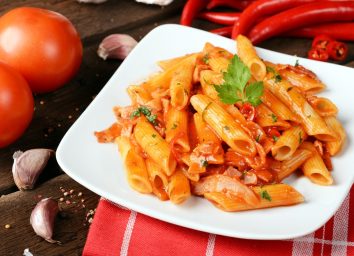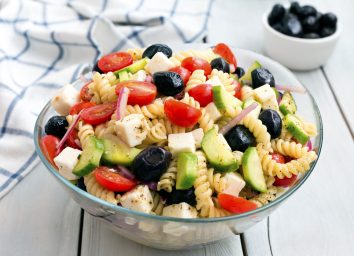The Simple Way To Cook Pasta Faster
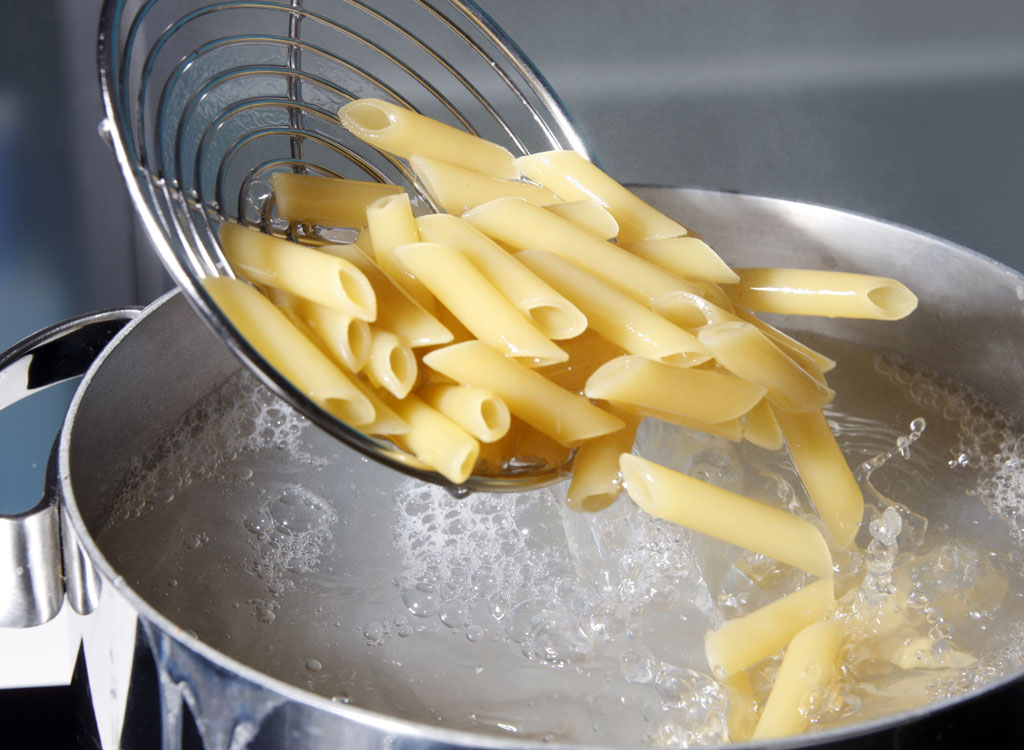
Cooking dinner can be a pain. It can be even more of a pain when you have to do it after getting home late from work and you're starving.
Unsurprisingly, it was under these dire conditions that I chose to transgress one of the cardinal rules of cooking—one that even amateur cooks know: I threw pasta… into water… that wasn't boiling.
I know. I KNOW! Terrible, right? My Italian ancestors were certainly shaking their heads with shame at me. But I feel compelled to let you all in on a little secret—you, too, can put pasta into cold water and not feel guilty about it. In fact, this is the first step of a method for how to cook pasta faster. (And by faster, we mean in half the time!)
Did you ever raise an eyebrow when Martha Stewart taught you about one-pan pastas? (For the uninitiated: One-pan pastas are when you throw in all your ingredients into a larger, shallow pan and cover the ingredients with cold water. See photo below for reference.)
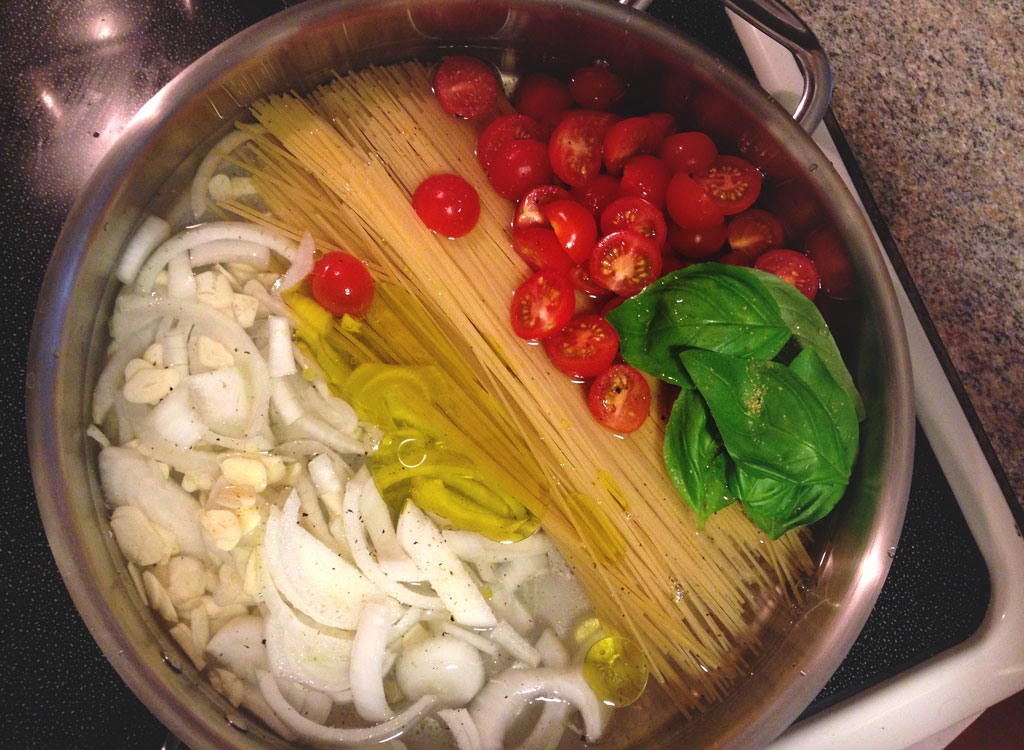
No, you probably didn't! So what if I told you you could use the same technique to cook all your pasta from now on?
Before you write me off as some random person on the internet, know that I did my research and found that actual professional chefs have done this too.
In fact, legendary food science author Harold McGee tackled this very same question in a New York Times article back in 2009.
McGee performed a little experiment at home. He put a pound of spaghetti into a pot, added 1 1/2 quarts of cold water (for reference, box directions instruct you to bring 4 to 6 quarts of water to a rolling boil first), and 2 teaspoons salt and then turned on the heat.
Despite having to stir often to prevent the noodles from sticking and because a smaller volume of water isn't enough to keep the pasta immersed the whole time, "the spaghetti came out fine."
If you ask me, a little extra stirring to get pasta on my plate faster is well worth it.
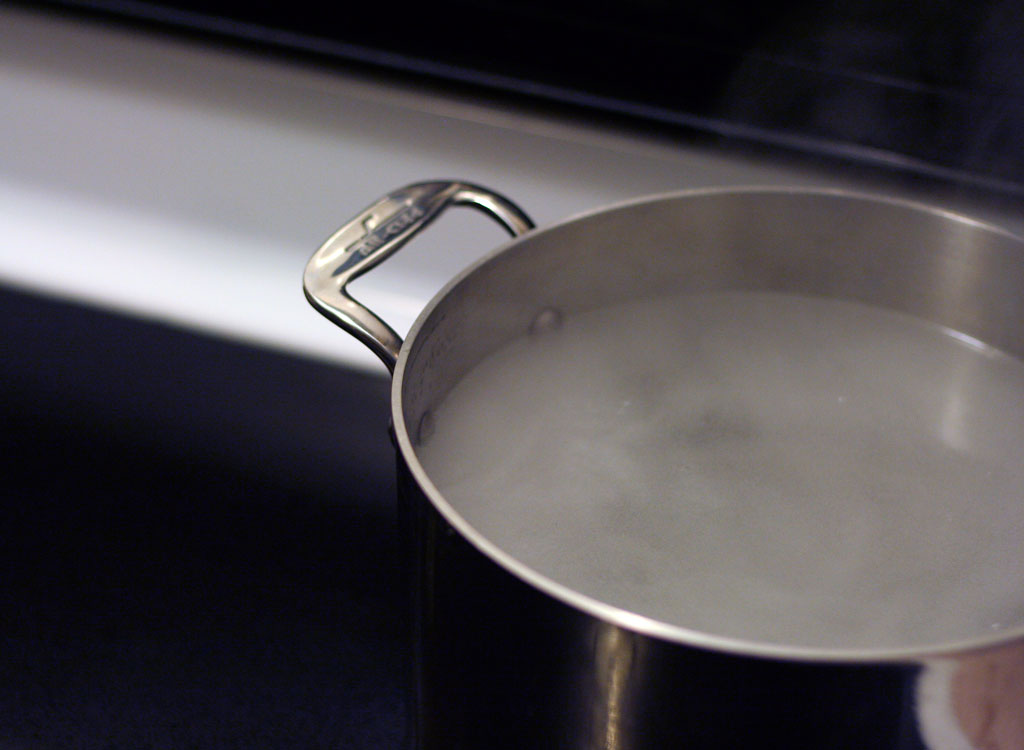
On top of getting dinner ready more quickly with this method, Kenji Lopez-Alt, author of James Beard Award-winning cookbook The Food Lab: Better Home Cooking Through Science and Managing Culinary Director for the blog Serious Eats, found that cooking pasta this way actually results in better, starchier pasta water.
"Aside from just thickening a sauce, starch also acts as an emulsifier," Lopez-Alt explains in a post The Food Lab: A New Way to Cook Pasta? "This means that [adding] a bit of pasta water [to your sauce] will emulsify it in to a light, creamy sauce that is much more efficient at coating pasta."
And—you guessed it—through experimentation, he found that the batch of pasta cooked in 1 1/2 quarts against the one cooked in 3 quarts was much starchier, and thus would be a much better sauce binder than what you'd typically be left with.
With all this being said, you must be chomping at the bit to try this method at home. So without further ado, we present to you how to cook pasta faster:
The Technique for How To Cook Pasta Faster
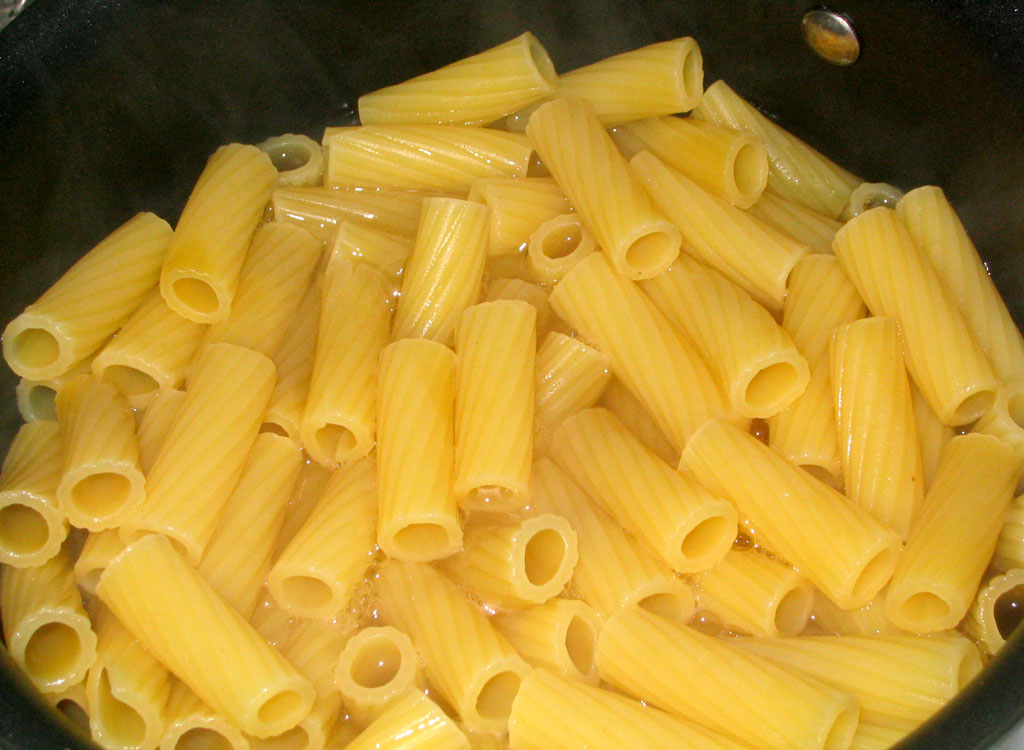
All you need to do is throw your pasta in a pot. (Depending on the amount of pasta you plan on cooking, adjust your pot or pan size accordingly so that the pasta mostly sits in a single layer of starchy goodness.)
Pour in enough water to cover the top of the pasta layer. Sprinkle in a touch of salt, set your burner on high, and give it a stir.
You'll have to stir occasionally throughout the cooking process to prevent the noodles from sticking, but in roughly 12 minutes, your pasta is ready! (We recommend performing a taste test to check the doneness rather than simply timing it.)
Depending on how much water is left in the pot, you can either add your sauce into the pasta directly (allowing that starchy pasta water to thicken up the sauce), or alternatively you can drain the pasta, add it to your sauce, and then add as much pasta water as you'd like.
Time Saved?
All in, McGee found this method takes roughly 12 minutes to cook pasta through. Compare that to the 15 minutes it takes to boil water plus 11 minutes to cook the pasta, and you've saved yourself at least 14 minutes of cooking time!
Fan of fast dinners? Don't miss our favorite 15-Minute Dinners for Weight Loss.
